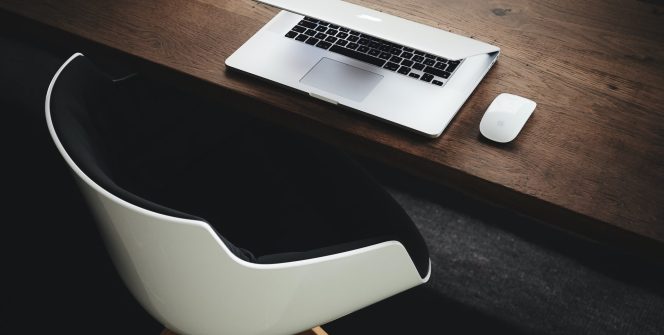As the UK enters recession, businesses around the country are facing difficult times ahead as many look to reopen. As well as finding ways to increase sales, naturally, business leaders and managers are finding ways to minimise costs and maximise profit.
One cost that many office-based businesses don’t think about is having equipment on standby instead of turning it off. Employees not shutting down their laptops and desktop computers means the computers continue to use energy even when not in use.
We conducted some research using the Business Electricity Prices cost calculator to understand exactly how much businesses could save by simply asking their employees to turn off their laptops and desktops instead of leaving them on standby. We focussed on running costs outside of normal office hours of 9am – 5pm, and instead looked at the 16 additional hours in any 24-hour period, along with 48 hours at weekends.
Microbusinesses
A microbusiness has between 1 – 9 employees. The vast majority, nearly 96%, of the UK’s companies are microbusinesses.
We looked at an average microbusiness with 1 employee, and calculated what would happen if that employee left their company laptop on standby rather than shut down at the end of the day (equaling 16 hours of standby). During a month this would cost £2.93 in excess of the company’s electricity bill. Over a year that would be £35.19 overspent on electricity.
If a microbusiness has 9 employees, each leaving their laptop on standby, that figure jumps to £26.38 a month. Over a year, a business with 9 employees would lose £316.56. This equates to just under the average small business’ yearly water utility bill.
Desktops use more power than laptops so are even more expensive. If we imagine a microbusiness with 1 desktop computer, continuously left on outside of normal working hours through the week, a business will spend £10.15 per month, or £121.81 every year in addition to their normal electricity charges. If a single desktop is left on during weekends, the amount wasted is £6.10 per month and £73.23 a year. In total, £195.03 is wasted every year if the desktop is continuously left on standby.
If we look at the microbusiness sector as a whole, the figures are shocking. If every UK microbusiness was to stop leaving their laptops on when not in use, the savings would be, at a minimum, over £190 million each year. For desktop computers, assuming every microbusiness has one, the savings would amount to more than £1 billion.
Small businesses
A small business operating in the UK is defined as having between 10 and 49 employees.
A small business that has 10 employees regularly leaving their laptops on over the weekend would waste £116.25 in a year. If there are 49 laptops, that increases to £569.86. If 10 laptops are continuously left on during weekdays, an additional £950.25 is wasted. That’s £1,520.11 wasted every year if 10 laptops are never turned off after work.
For those using desktop computers the results are even more dramatic. A business with 10 employees leaving desktops[EC9] [p10] on standby over the weekend would rack up £646.22 in extra electricity charges over a year. If there are 49 desktop computers left over the weekend it is a hefty £3,166.44 extra per year, on weekdays evenings £5,277.64 each year – meaning a yearly loss of £8,444.09.
This would be more than enough to pay for 3 month’s commercial rent in most UK cities.[2]
If desktop computers are continuously left on, both during the night and over the weekend by 10 employees the extra cost to a small business is £1,723.27 per year.
Medium businesses
While medium-sized businesses do pay less on average than smaller businesses per unit of energy, most medium companies – especially those running commercial or office spaces – will have large electricity bills.
A medium-sized business can have between 50 and 249 employees. If we assumed that an average medium-sized business had 249 laptops running through the night Monday – Friday that would cost the business £4,505.48 in additional electricity costs every year. [EC13] [p14] If the laptops are left on both during the night and on weekend, that would result in a waste of £600.74 per month, £7,208.91 in an average year.
The same company running desktop computers outside of regular office hours would waste an incredible £40,048.69 every year.
In 2019 the average yearly salary for a full time employee was £30,420[3], so the savings from employees switching their machines off would be more than enough to hire an additional employee.
Large businesses
Finally, let’s take a look at large businesses. A large business has 250+ employees.
A business with 250 laptops regularly left on over the weekend is losing £2,520.22 every year. If employees are also leaving laptops on when they leave the office on weekdays, the company will lose an additional £4,200.60 each year.[EC17] [p18] That’s a total of £6,720.82 every year lost in excess electricity payments.
Again, desktop computers use more power than laptops, so the costs for leaving them on standby are far higher. 250 desktop computers left on during weekends would cost a business £14,001.53 each year. If left on over weekday nights as well, that cost jumps to £37,337.42 per year. For many companies, this would cover rental lease payments for a year.
The results of our research show that businesses could be wasting thousands of pounds every year due to leaving company laptops and desktop computers turned on when not in use.
If that applies to you and your business, now is the time to discuss energy efficiency with your staff and agree on ways to improve your working practices. For businesses with a smart meter, this tool can be used to monitor your electricity usage on an evening and over the weekend and establish a baseline for improvement.

Leave a Reply